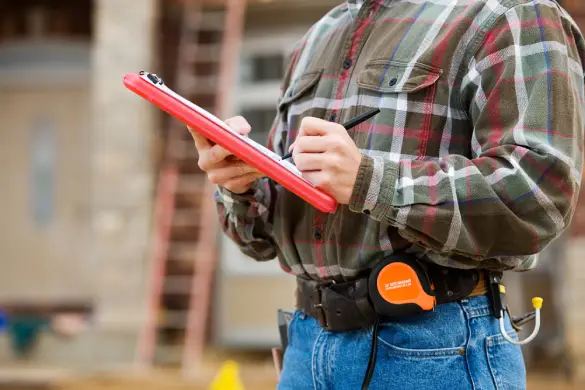
Home inspection businesses are an essential part of the real estate industry. Of course, they require many important startup considerations, just like any other business. Prior to opening your business, you should secure an home a home inspector’s license. Then, you will be on your way to starting your own home inspection business. As an entrepreneur, you know the importance of planning out business ideas in order to turn a profit. While there are some startup costs, the initial process is fairly inexpensive and straightforward. Read on to discover the strategic steps for a home inspection business startup.
Make A Business Plan
Making a business plan is the first step in starting a home inspection business at lower costs. To be as successful as possible, your business needs a solid plan. This plan needs to account for cost, market, and timeline. Without a stellar strategy, your business will lack direction and you will spend more money than needed as a result. There are many examples and templates for these plans all over the internet that you can use to jump start your own ideas. Using these resources, you should be able to synthesize a killer business plan that will keep your costs low. Indubitably, making a business plan is an imperative for a home inspection startup.
Registering Your Business
Registering your new business is a second step for a home inspection startup. Establishing a legal business entity will protect you from being held personally liable in the event someone sues your business. The most common business structure types are sole proprietorship, partnership, corporation, and limited liability companies (LLC’s). LLC’s are often the easiest way to structure your business for protecting your personal assets. In addition to a structure, you also need to register for state and federal taxes. Of course, this can vary greatly based on location. The easiest way to do so is to register your business online for an Employer Identification Number (EIN), which is free of charge. Certainly, registering your business is an important step when starting a company.
Technical And Manpower Considerations
Making technical and manpower considerations is the third step in starting a home inspection business. You won’t need any special equipment, but you will need a furnished office with computers, telephones, and internet service. Depending on your business plans, you will need a minimum of 3 to 6 staff members to run a small-scale home inspection business. Running with a skeleton crew will surely reduce costs by having less people on payroll. Additionally, short-term leases of office property to operate out of will also reduce costs. These leases are cheaper and can be renewed or not based upon your business’s performance. Definitely, technical and manpower considerations are vital for a startup home inspection business.
Branding
Branding represents the fourth step in starting a home inspection business. Developing your brand is imperative because it is incredibly expensive to change later. Choosing a name that will attract consumers is the first step in this process. It is recommended that you keep it simple and avoid superlatives like “best” or “top.” The most effective company names are unique. Plus, they should be easy to pronounce and remember. Further, you will need a logo as well. There are many professionals companies that will create one for you at a cost. However, this is an imperative part of your business, so eating this cost will be a big help in the long run. Make sure you’re happy with your logo, as one that’s just “OK” will make you and your business seem unprofessional. Of course, branding is an important aspect in starting a home inspection business.
Liability Insurance
Implementing liability insurance is a final step in starting a home inspection business. Comprehensive insurance for self-employed entrepreneurs is necessary to build trust with customers. This insurance will help protect your business investments from potential lawsuits. Your business will be responsible for determining the safety of your clients’ homes. If they discover problems after moving in, there’s potential for an expensive lawsuit. Therefore, liability insurance for your business is another necessary expense. Spending the money on it will prevent you from losing money or personal assets in the event of a lawsuit. Surely, employing liability insurance is an imperative final step for a home inspection startup.
Starting a home inspection business at low costs can be done in several ways. One way of doing so involves creating a business plan as the first step, so there is direction to the business. The second step involves registering your business legally and for tax purposes. Making technical and manpower considerations while keeping cost in mind is the third. Fourth, spend a little bit on branding your business. Finally, purchase a liability insurance policy. These final two steps may require a little bit of capital, but they will save you much more in the long run. When wondering about the strategic steps for a home inspection business startup, consider the points above.
 Business First Family Business, Accounting, Finance, Investing, Marketing And Management
Business First Family Business, Accounting, Finance, Investing, Marketing And Management